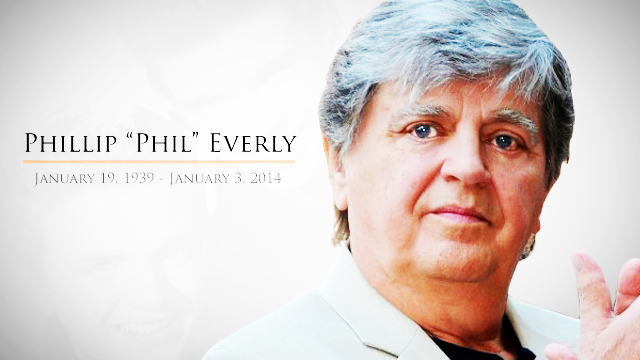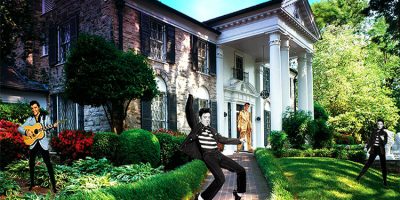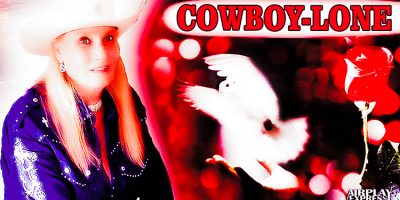More On The Passing Of The Great Phil Everly

PETER COOPER’S ARTICLE ON PHIL EVERLY IN THE TENNESSEAN
Once again, Peter Cooper has written another super article on one of music’s great artists, Phil Everly. I urge to read the following article which Peter has included in today’s Tennessean. The music industry has endured many sad and great losses in the year 2013, and to start 2014 off with the great loss of Phil Everly, half of the Everly Bros. due, was filled with sadness. Peter has given his all to this article and it is worth every word you will read – Marty Martel
Earth lost an Angelic Harmonizer in Phil Everly
To call Phil Everly’s harmonies angelic is to reveal an unreasonably elevated regard for angel voices.
Everly died Friday in a California hospital, two weeks shy of his 75th birthday. Chronic obstructive pulmonary disease. He is rightly remembered for bringing remarkable, country-rooted harmonies into early rock ‘n’ roll, and for providing a template for adoring followers, including the Beatles and Simon & Garfunkel.
In Middle Tennessee, he is also remembered as a friend and neighbor, a charmer who laughed easily and who was most comfortable away from stages and hubbub. He and his wife, Patti, had a home in Columbia, and he spent time here with dear old friends like fellow Rock and Roll Hall of Famers Duane Eddy and J.I. Allison and with newer friends like frequent co-writers Bobby Tomberlin, Shawn Camp and Billy Burnette.
Familiarity with Everly bred nothing like contempt. Around the world, Everly was idolized. Here, he was appreciated. That appreciation came not only because of his role in The Everly Brothers, one of the most significant recording acts in rock ‘n’ roll history, but also for less iconic things. He was nice to people. He liked to go to high school football games. He’d spend hours at Walmart playing with the jewelry claw machine, just for fun.
Folks who met Phil Everly came away thinking he was a regular guy, at least until they went home, played his music and understood that he was not regular at all: He was extraordinary and unequaled. When he sang, particularly when he sang in harmony with his older brother, Don, he filled hearts and mocked angels.
He also helped build Music City. The Everly Brothers were the first major rock act based in Nashville, and the monumental success of the Everlys and Elvis Presley — who lived in Memphis but began recording in Nashville in 1956 — offered profitable proof that Nashville studios and musicians were capable of producing music that connected with the young and burgeoning rock ‘n’ roll generation.
“Perhaps even more powerfully than Elvis Presley, the Everly Brothers melded country with the emerging sound of ’50s rock ‘n’ roll,” Paul Simon wrote in an essay for Rolling Stone magazine.
Everly moved to Nashville in 1955, at age 16, already a show business veteran. He began singing on the radio at age 6, harmonizing naturally with his parents and brother on an Iowa radio station.
“Harmony winds up being something you have to do instinctively,” he told interviewer Phyllis Karpp. “I always figured that someone slapped me on the back of the head from somewhere, because it wasn’t anything I did consciously. Brothers have a tendency to match, and there is the idea that your musical influences are the same, your training’s the same, your environmental influences are the same. Everything is in sync.”
At first, he and Don sang in the alley outside the Ryman Auditorium, hoping to catch the attention of Grand Ole Opry stars. Two years later, The Everly Brothers became breakout stars whose hits crossed from country to pop charts and who performed with father of bluegrass Bill Monroe, smooth-voiced country singer Jim Reeves, and first-generation rockers like Duane Eddy, Chuck Berry and Buddy Holly. In 1957, the brothers’ “Wake Up Little Susie” topped “Billboard”‘s country, pop and R&B charts, and 1958’s “All I Have To Do Is Dream” did the same.
The Nashville husband-and-wife songwriting team of Felice and Boudleaux Bryant wrote those, as well as early hits including “Bye Bye Love” “Bird Dog.” But Phil Everly would later prove himself as a major songwriter, co-writing “I Wonder If I Care As Much,” “The Price Of Love,” “Gone, Gone, Gone” and many more, and writing “When Will I Be Loved,” which reached the Billboard Top 10 in 1960 for the Everlys and topped the Billboard country chart for Linda Ronstadt in 1975. In recent years, he wrote numerous songs in Nashville.
“He loved writing songs,” said Tomberlin, a Grammy-nominated Nashville writer. “He still had the fire for it.”
The Everly Brothers’ Nashville recordings of the 1950s brought worldwide success, and some talented imitators. Simon, who told the New York Times that the Everlys were “the most beautiful sounding duo I ever heard,” took note, and he cites Phil and Don Everly as prime inspirations for Simon & Garfunkel. (He also brought the Everly Brothers in to sing harmonies on 1980s smash “Graceland.”) And when Liverpool lads Paul McCartney and John Lennon began singing together, they pondered billing themselves as “The Foreverly Brothers.” Instead, they called their group the Beatles, but based their harmonic structures on the Everlys. When McCartney met Everly, he reportedly gushed, “I was you, and John was Don!”
The Everly sound was rooted in the country music tradition of brother acts: Sibling harmonies brought the Louvin Brothers, the Delmore Brothers and others to popular attention. Phil Everly internalized the harmony structures of those artists, and he often added unexpected twists, shifting athletically from note to note, while perfectly matching Don’s phrasing. Phil was a tremendous lead singer, as evidenced by the Duane Eddy-produced 1973 album “Star Spangled Springer,” but it was as a harmony vocalist that he made his most indelible marks. He and his brother’s splendid harmonies are also heard on Simon’s “Graceland” and Johnny Cash’s 1988 re-recording of the Jack Clement-penned “Ballad of a Teenage Queen,” and Phil sang harmonies on Nashvillian Nanci Griffith’s “It’s Just Another Morning here” in 1991.
The Everly Brothers spent much of the 1960s recording in California, to varying levels of success. They broke up in 1973, reuniting 10 years later to play shows and to make the comeback album, “EB84,” which includes “The First In Line,” a song penned by Nashvillian Paul Kennerley. They made two more albums together in the 1980s and came together to tour with Simon & Garfunkel in 2003 and on a European tour in 2005.
The brothers are one of only 11 artists to be inducted into both the Country Music and Rock and Roll halls of fame, along with Elvis Presley, Brenda Lee, Johnny Cash, Jimmie Rodgers, Hank Williams, Bill Monroe, Sam Phillips, Chet Atkins, Bob Wills and Floyd Cramer.
In 2009, Robert Plant and Alison Krauss’ Grammy performance included a riveting rendition of “Gone, Gone, Gone,” a highlight of Plant and Krauss’ 2007 “Raising Sand” album. And in November, Billie Joe Armstrong and Norah Jones pointed attention to the Everly legacy with a well-received album of covers called “Foreverly.”
So, Phil Everly is gone. And that’s a big, sad deal. His voice layered beauty atop beauty and made what gleamed shine even truer. He liked to say that harmony was the ultimate love. If that’s true, then we’ve lost the world’s greatest lover.
Reach Peter Cooper at (615) 259-8220 or pcooper@tennessean.com





I loved this review… and I loved the Everly Bros too! Since I once wanted to be a background singer in Nashville (never suspecting back then I’d be an Indie lead singer/songwriter), and harmony is a God-given gift of mine, I especially loved Peter’s ending when he wrote: “So, Phil Everly is gone. And that’s a big, sad deal. His voice layered beauty atop beauty and made what gleamed shine even truer. He liked to say that harmony was the ultimate love. If that’s true, then we’ve lost the world’s greatest lover.”
There will be another bright star in the heavens. You will be missed PHILL EVERLY, R.I.P.